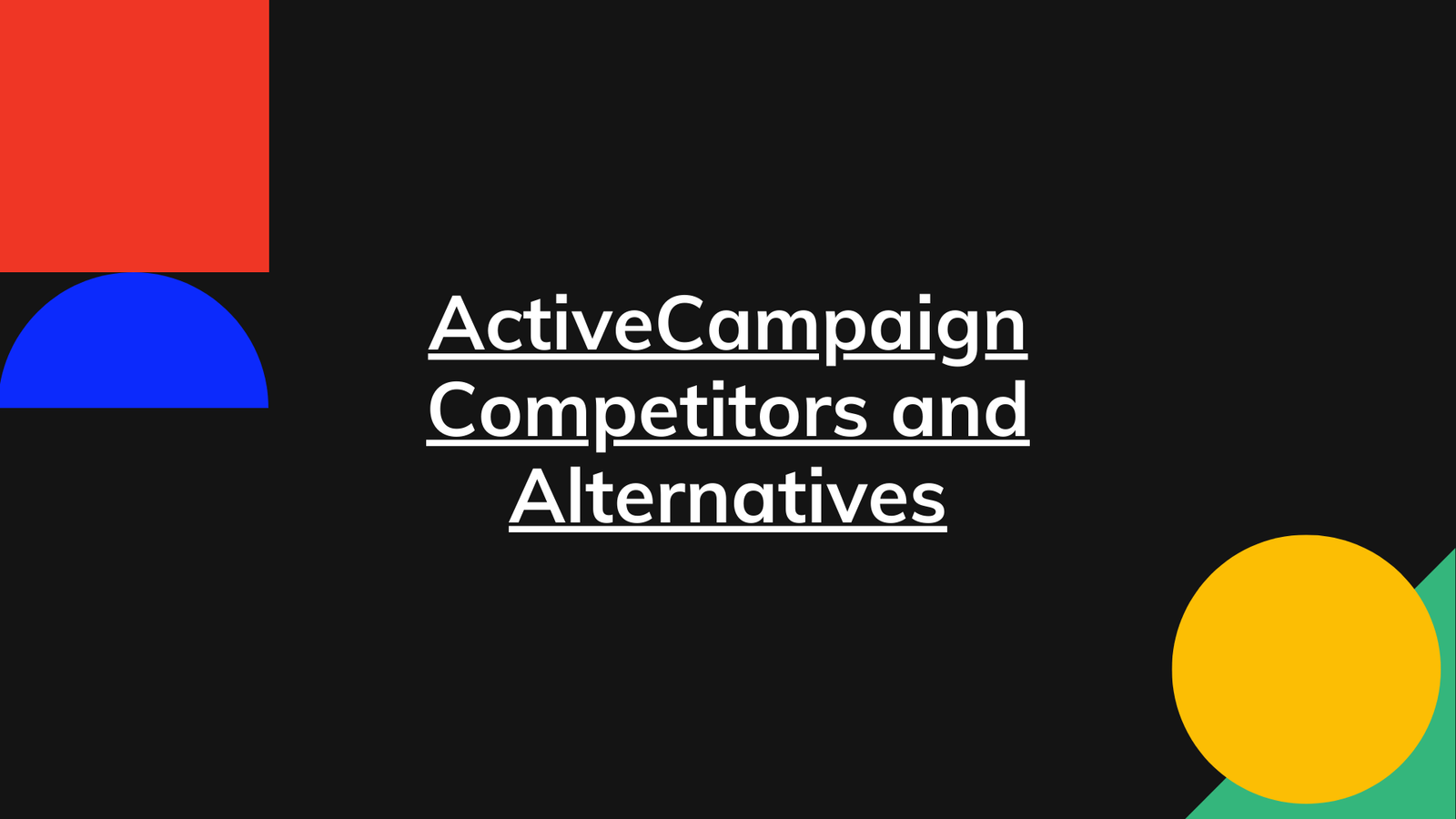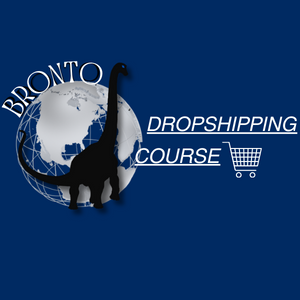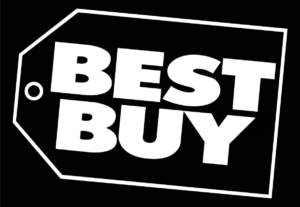Introduction
In today’s fast-paced digital landscape, choosing the right email marketing and Customer Relationship Management (CRM) platform is crucial for businesses aiming to effectively engage their audience and manage customer interactions. Among the plethora of options available, ActiveCampaign has emerged as a prominent player, known for its sophisticated email automation and CRM integration. However, it’s not the only choice. Competitors like HubSpot, GetResponse, and MailChimp also offer compelling features and benefits, each catering to different business needs and objectives.
This comprehensive guide aims to delve into the specifics of ActiveCampaign and Activecampaign Competitors, providing insights into their key features, strengths, and ideal use cases. Whether you are a startup looking for user-friendly tools, a growing business seeking scalability, or a large enterprise in need of a comprehensive solution, understanding the nuances of these platforms is essential.
From assessing the ease of use and integration capabilities to exploring pricing plans and scalability options, this guide will equip you with the knowledge to make an informed decision. The goal is to identify which platform aligns best with your business’s marketing strategy, customer relationship management needs, and overall growth objectives. Let’s embark on this journey to discover which platform could be your ideal partner in achieving digital marketing success.
Table of Contents
Competitor 1: HubSpot
HubSpot: One of the Formidable Activecampaign Competitors
In the realm of ActiveCampaign competitors, HubSpot is a standout choice, particularly for its extensive CRM and marketing automation capabilities. This section offers an insight into HubSpot’s features, positioning it in comparison to ActiveCampaign.
Key Features of HubSpot
- Comprehensive CRM Platform: HubSpot excels with its integrated suite encompassing marketing, sales, content management, and customer service tools. This integration is key for businesses seeking an all-in-one solution.
- Intuitive User Interface: HubSpot is renowned for its user-friendly design, making it easy for beginners to navigate and utilize its extensive features.
- Free CRM Access: A unique advantage over ActiveCampaign is HubSpot’s free CRM offering, appealing to small businesses or those new to CRM and email marketing.
- Advanced Marketing Automation: With HubSpot, users have access to sophisticated marketing automation tools, including personalized workflows and detailed analytics.
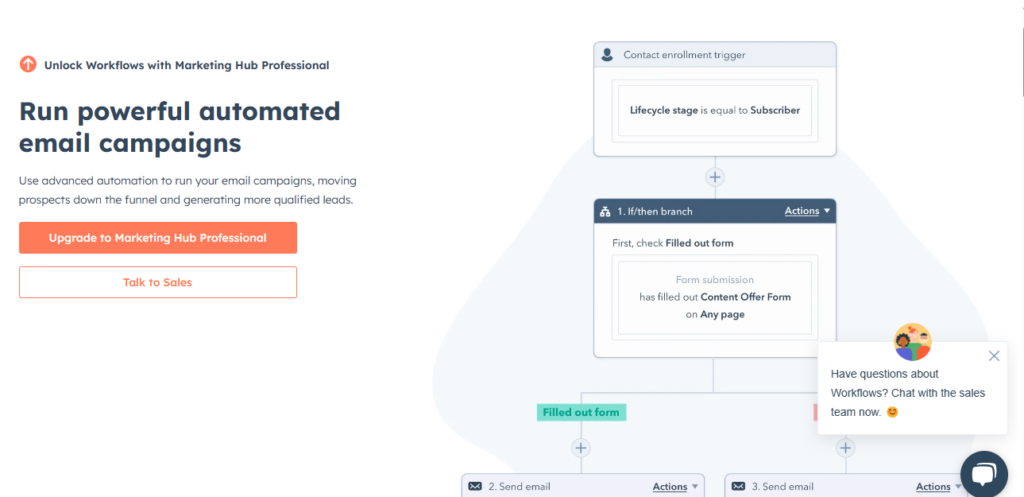
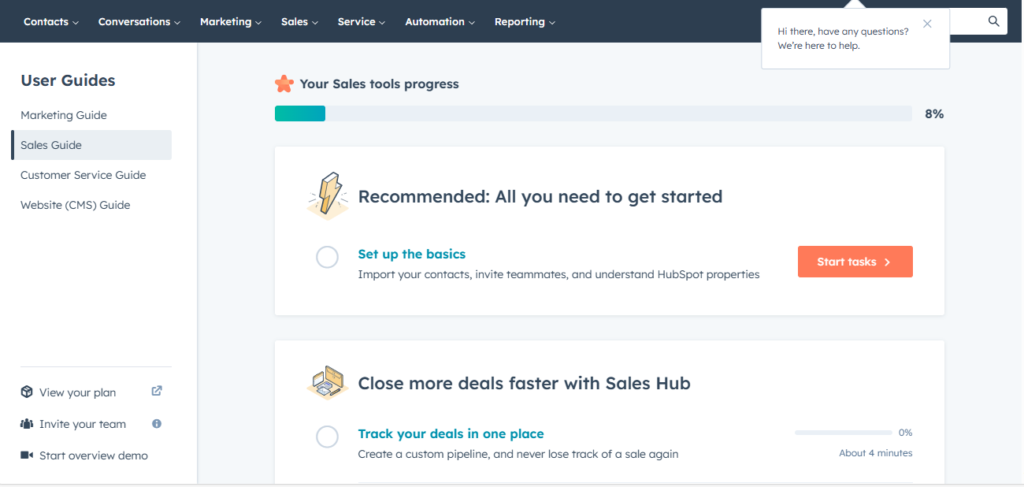
Comparative Advantages Over ActiveCampaign
- All-encompassing CRM: HubSpot’s integrated CRM system is more comprehensive than what ActiveCampaign offers, providing deeper customer data management and engagement tracking.
- Content Creation and Management: HubSpot’s content management system (CMS) allows for seamless website and blog creation, a feature not central to ActiveCampaign.
- Educational Resources and Community Support: HubSpot’s extensive library of learning materials and its active community forum provide significant value to users, enhancing their marketing expertise.
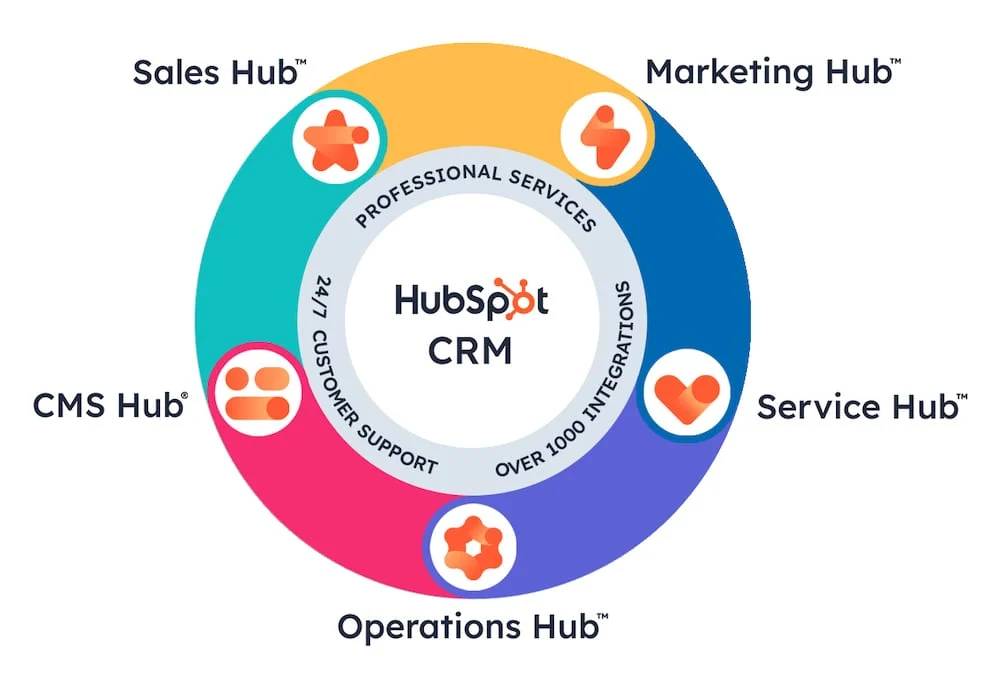
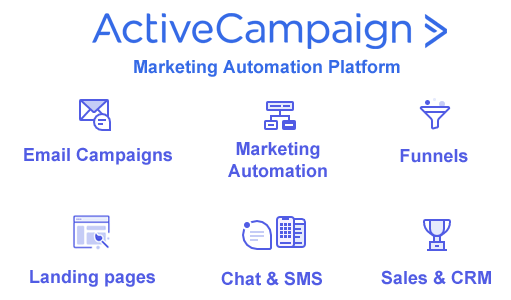
Ideal Use Cases for HubSpot
- For businesses in need of an integrated platform encompassing CRM, sales, and marketing.
- For companies with a focus on content marketing requiring tools for content creation and management.
- For startups or small businesses looking for a robust, no-cost CRM solution.
Competitor 2: GetResponse
GetResponse: A Strong Contender Against ActiveCampaign in Email Marketing Automation
Exploring ActiveCampaign competitors, I find GetResponse to be a notable choice, particularly for its specialized email marketing and automation capabilities. In this section, I’ll delve into the main features of GetResponse and how it compares with ActiveCampaign.
Key Features of GetResponse
- Focused Email Marketing: GetResponse shines with its robust email marketing tools, offering numerous customizable templates and advanced segmentation for targeted campaigns.
- User-Friendly Automation and Autoresponders: The platform excels in automation, enabling users to create sophisticated autoresponders and triggers based on customer behaviors.
- Landing Page and Webinar Tools: A unique offering by GetResponse is its integrated landing page builder and webinar hosting, adding significant value to the email marketing suite.
- E-commerce Features: Tailored for online retailers, GetResponse provides specialized e-commerce tools like abandoned cart emails and sales tracking.
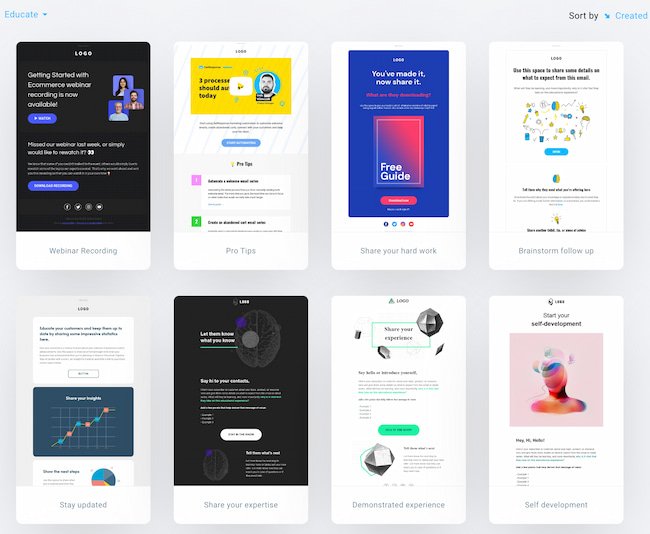

Advantages Over ActiveCampaign
- Enhanced Email Marketing Capabilities: GetResponse arguably has an edge over ActiveCampaign in email marketing, thanks to its extensive template collection and superior segmentation tools.
- Webinar Hosting Integration: Setting it apart, GetResponse offers webinar hosting within its platform, a feature not available in ActiveCampaign.
- Budget-Friendly Option: For those prioritizing email marketing or operating on a tighter budget, GetResponse often emerges as a more cost-effective solution.
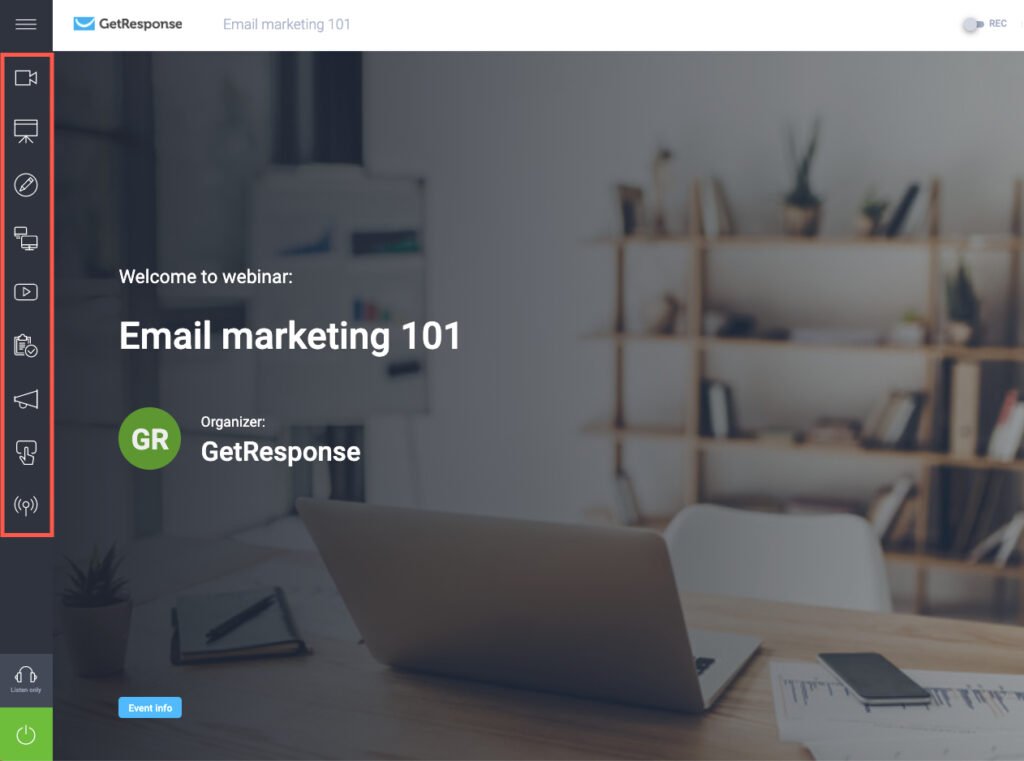
Ideal Scenarios for Using GetResponse
- For businesses heavily focused on email marketing and requiring detailed segmentation.
- For organizations seeking to integrate webinars into their marketing efforts.
- For e-commerce businesses needing advanced marketing tools specifically designed for online retail.
Competitor 3: MailChimp
MailChimp: A Versatile and User-Friendly Alternative to ActiveCampaign
In the landscape of ActiveCampaign competitors, MailChimp stands out as a versatile and user-friendly option, especially known for its email marketing and audience management tools. Here, I’ll explore the key aspects of MailChimp that position it as a significant alternative to ActiveCampaign.
Key Features of MailChimp
- Email Marketing Excellence: MailChimp has long been recognized for its powerful email marketing tools, including an extensive range of templates and segmentation options.
- Ease of Use: One of MailChimp’s biggest strengths is its intuitive interface, making it exceptionally user-friendly, especially for beginners or small businesses.
- Audience Management Capabilities: MailChimp offers robust audience management features, allowing for effective segmentation, tagging, and personalized campaign creation.
- E-commerce Integration: MailChimp provides specialized tools for e-commerce businesses, like product recommendations and purchase behavior tracking.
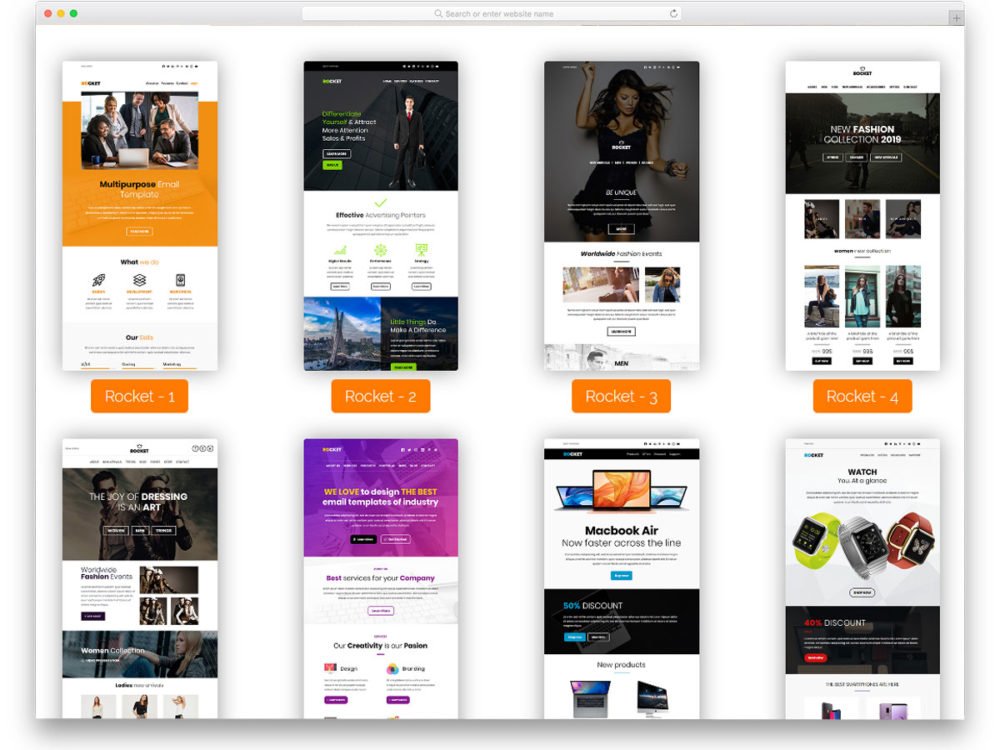
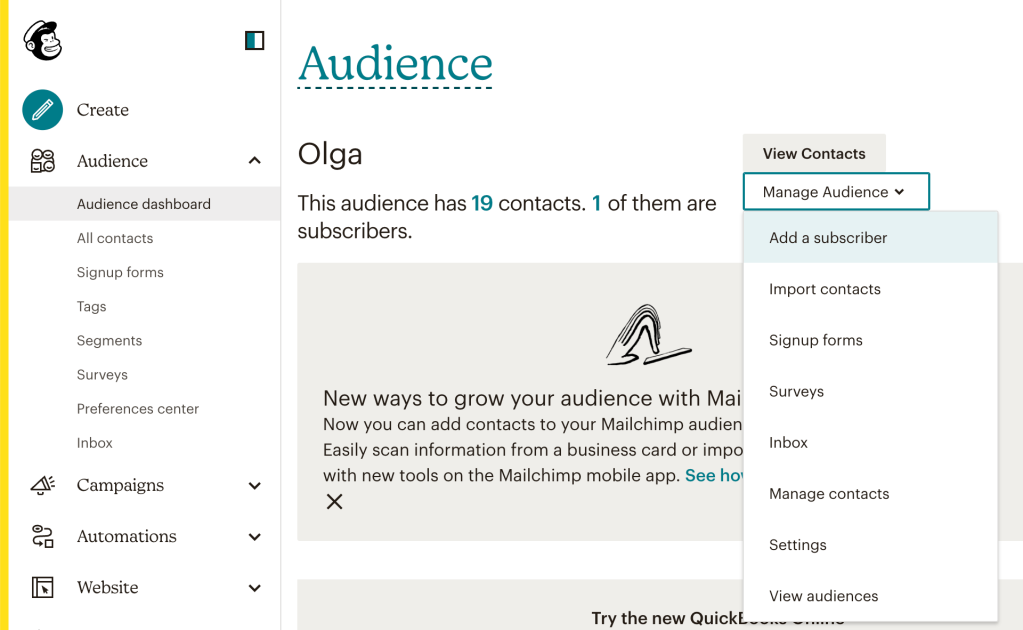
Advantages Over ActiveCampaign
- Superior Template Selection: MailChimp boasts a more extensive selection of email templates compared to ActiveCampaign, catering to a wide variety of styles and industries.
- User-Friendly for Beginners: Its simple and intuitive interface makes MailChimp a go-to for those new to email marketing or with limited technical expertise.
- Flexible Pricing Plans: MailChimp offers a range of pricing plans, including a free tier, making it accessible for businesses of all sizes.
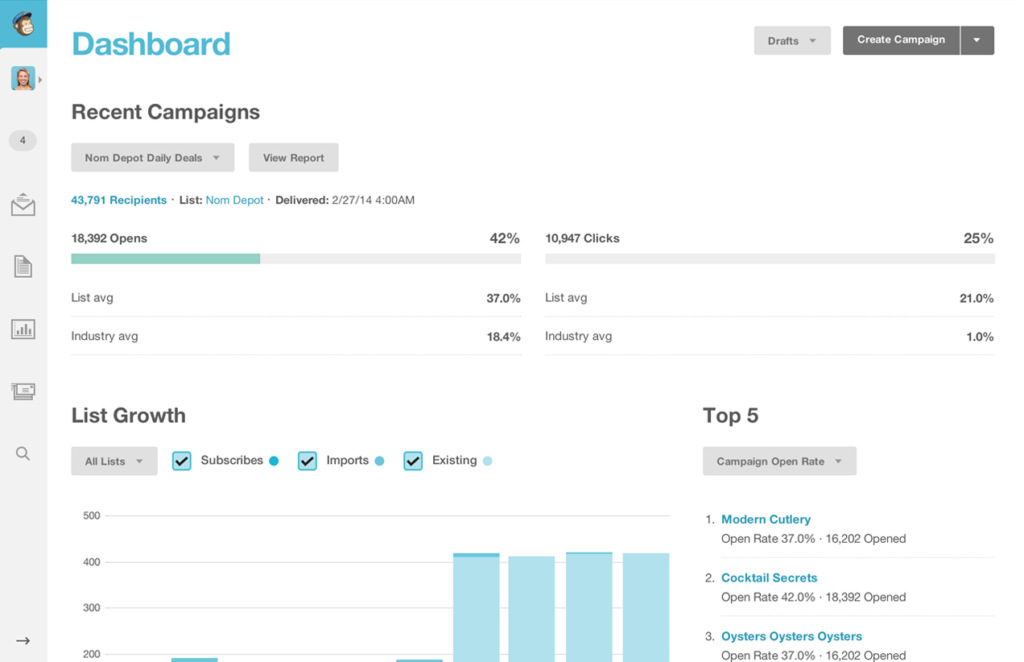
Ideal Scenarios for Using MailChimp
- For small businesses or beginners looking for an easy-to-use email marketing platform.
- For companies with a strong focus on audience segmentation and personalized campaigns.
- For e-commerce businesses seeking integrated marketing tools tailored to their needs.
Pricing and Plans
Evaluating the Pricing Plans of ActiveCampaign and Activecampaign Competitors
When considering ActiveCampaign competitors, a critical factor for businesses is the variety and flexibility of the pricing plans offered. In this section, I’ll provide a detailed look at the pricing plans of ActiveCampaign, HubSpot, GetResponse, and MailChimp, highlighting key aspects to help businesses make an informed choice.
ActiveCampaign Pricing Plans
ActiveCampaign’s pricing structure is based on the number of contacts and the level of features required. The main plans include:
- Lite: Offers basic email marketing features and is ideal for small businesses starting out.
- Plus: Includes CRM and lead scoring, suitable for growing businesses.
- Professional: Advanced automation and analytics for larger businesses.
- Enterprise: Customizable solutions for large-scale operations.

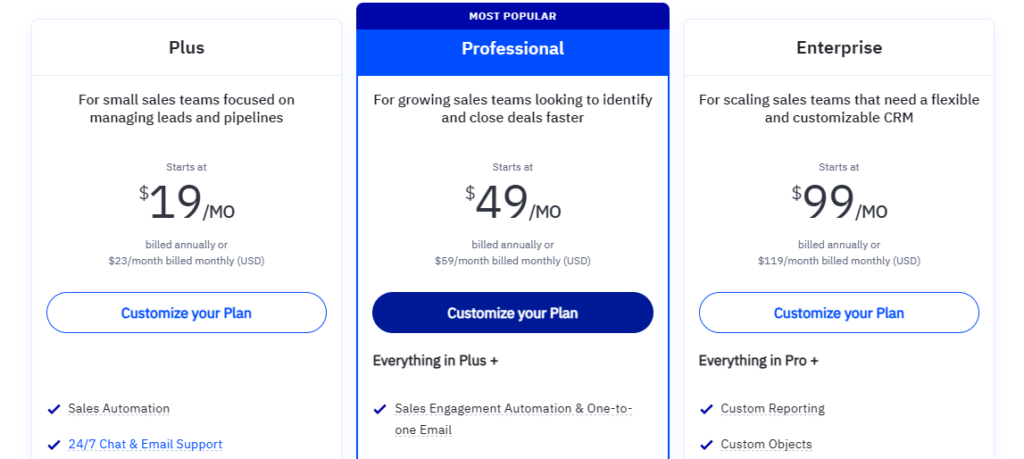
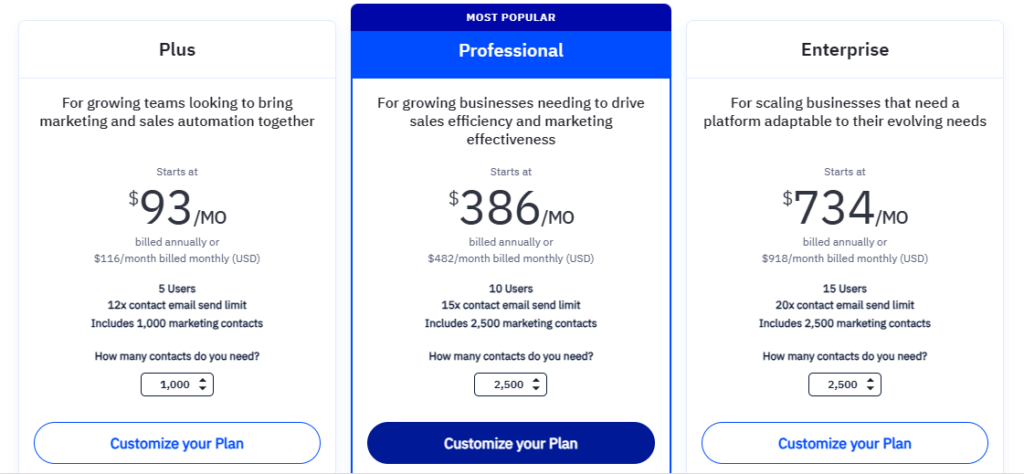
HubSpot Pricing Plans
As far as activecampaign competitors. HubSpot offers arguably the best range of plans, catering to different business needs:
- Free: Access to basic CRM features.
- Starter: Includes basic marketing tools, ideal for small businesses.
- Professional: More comprehensive tools for marketing automation.
- Enterprise: Advanced features for large organizations.
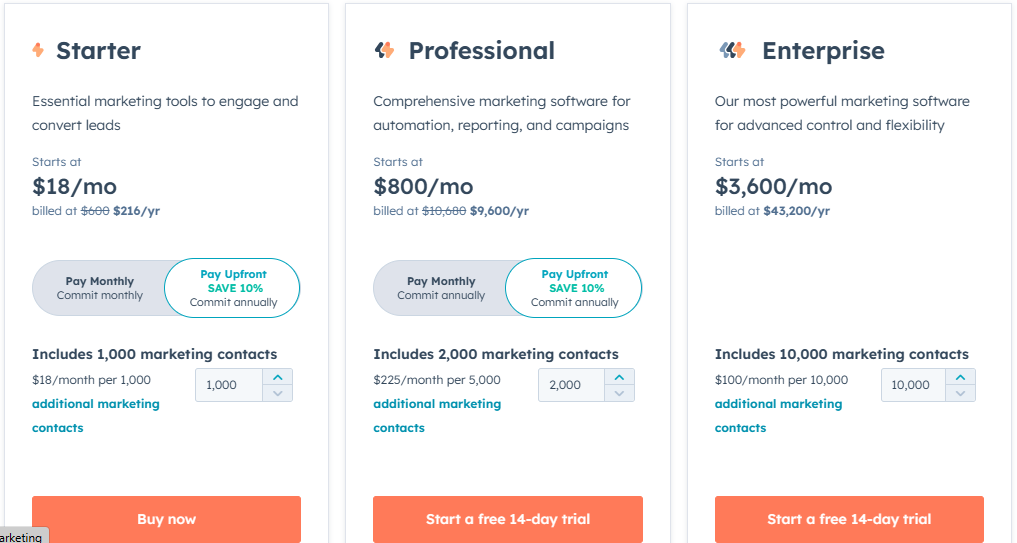
GetResponse Pricing Plans
GetResponse‘s plans are tailored to the size and scope of your marketing needs, making it the 2nd most affordable of the activecampaign competitors:
- Basic: Basic email marketing and autoresponders.
- Plus: More advanced automation and contact segmentation.
- Professional: Comprehensive tools for larger marketing campaigns.
- Max: Custom solutions for enterprise-level needs.

MailChimp Pricing Plans
MailChimp’s pricing is designed to accommodate businesses of all sizes:
- Free: Basic email marketing features.
- Essentials: Access to more templates and automation options.
- Standard: Advanced audience insights and retargeting.
- Premium: All-inclusive features for large-scale marketing efforts.
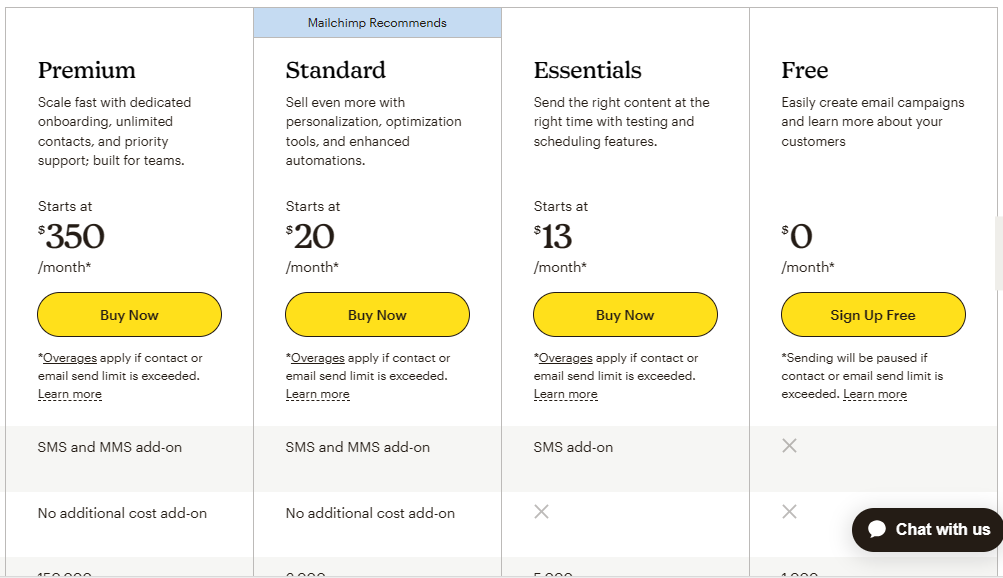
Key Considerations
- Scale and Complexity: The choice of plan should align with your business size and the complexity of your marketing needs.
- Budget Constraints: Consider the cost-effectiveness of each plan in relation to the features offered.
- Growth Potential: Look for plans that offer scalability as your business grows.
Ease of Use
Assessing the User-Friendliness of ActiveCampaign and Activecampaign Competitors
Ease of use is a critical factor when choosing between ActiveCampaign and Activecampaign competitors, especially for businesses with limited technical expertise. In this section, I’ll evaluate the user-friendliness of ActiveCampaign, HubSpot, GetResponse, and MailChimp, focusing on how intuitive and accessible these platforms are for users.
ActiveCampaign’s User Experience
ActiveCampaign offers a balance of advanced features with a relatively user-friendly interface. While it has a steeper learning curve due to its comprehensive functionalities, the platform is well-organized, making it manageable for users with some experience in email marketing and CRM.
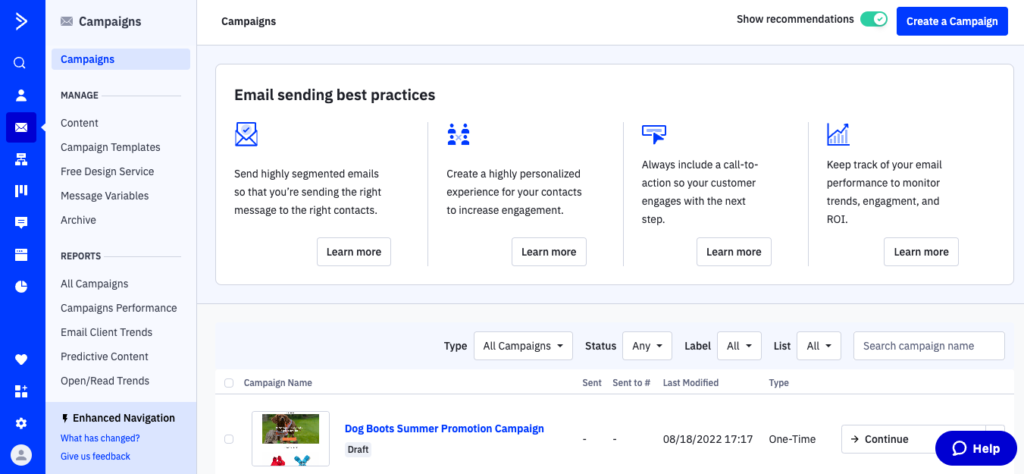
HubSpot’s Ease of Use
HubSpot is known for its intuitive and clean interface. Despite offering a wide range of features, it maintains user-friendliness, making it a good choice for businesses of all sizes. Its onboarding process and extensive resources also help users get accustomed quickly.
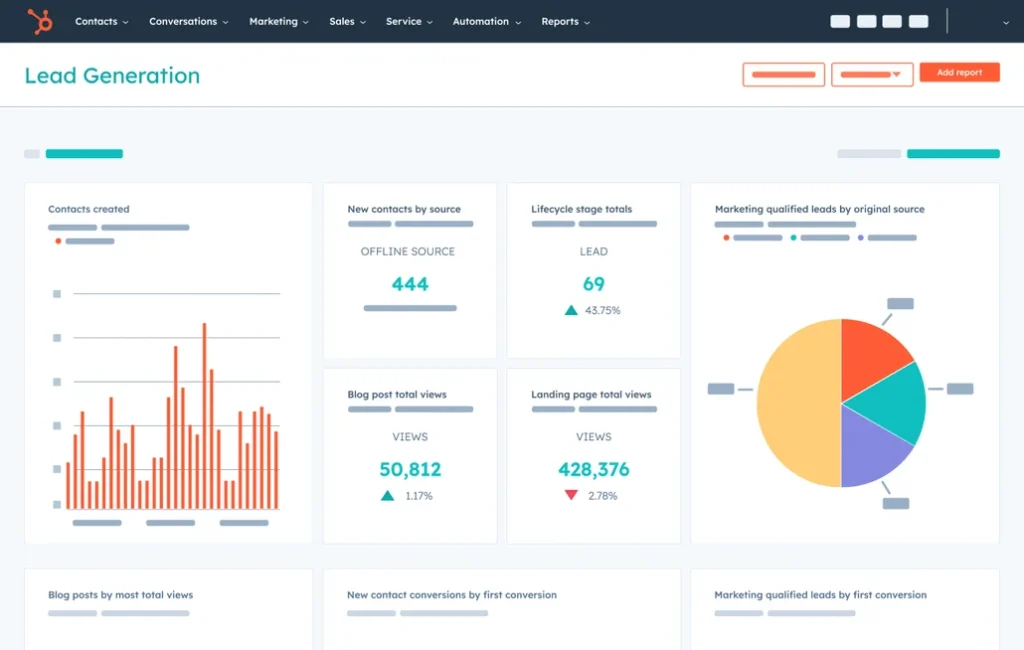
GetResponse’s Accessibility
GetResponse stands out for its straightforward and easy-to-navigate interface. It is particularly user-friendly for those focusing on email marketing and automation, even for beginners in the digital marketing realm.

MailChimp’s Simplicity
MailChimp is often praised for its simplicity and ease of use. The platform is designed with beginners in mind, offering a clear and straightforward path to creating and managing email campaigns and marketing automation.
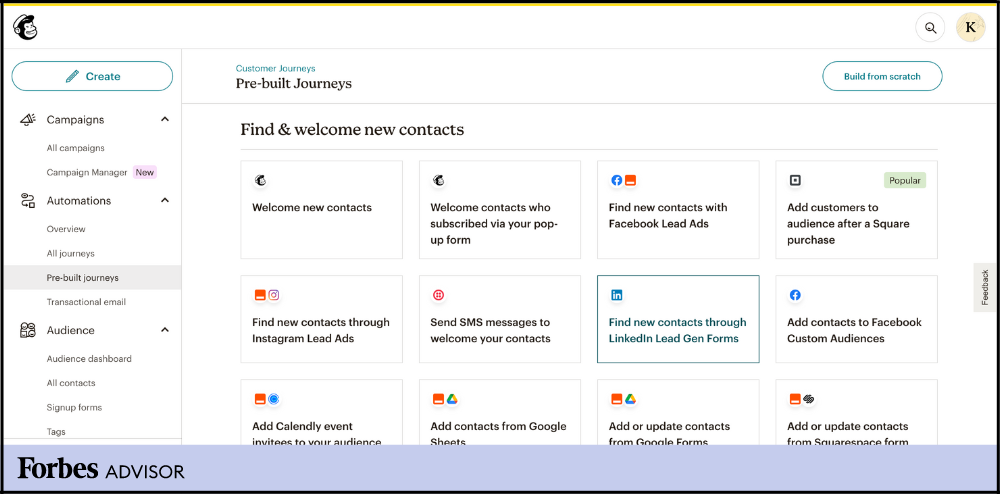
Key Insights
- ActiveCampaign: Suitable for users with some prior experience in digital marketing tools, offering a good balance between advanced features and usability.
- HubSpot: Ideal for businesses seeking an intuitive platform with comprehensive marketing, sales, and service tools.
- GetResponse: A great option for those who prioritize ease of use in email marketing and automation.
- MailChimp: Perfect for beginners and small businesses looking for a straightforward and user-friendly marketing platform.
Key Strengths of ActiveCampaign
Highlighting the Core Advantages of ActiveCampaign in the Competitive Landscape
In the context of ActiveCampaign competitors, it’s essential to understand the distinct strengths that set ActiveCampaign apart. This section focuses on the key strengths of ActiveCampaign, offering insights into why it remains a popular choice in the world of email marketing and CRM.
1. Advanced Email Marketing Automation
ActiveCampaign excels in its advanced email automation capabilities. It allows for highly personalized and dynamic content, making it a powerful tool for targeted marketing campaigns.
2. Comprehensive CRM Integration
The platform offers a seamless CRM integration that helps businesses track customer interactions, manage leads, and nurture customer relationships effectively.
3. Detailed Analytics and Reporting
ActiveCampaign provides in-depth analytics and reporting features, giving businesses valuable insights into campaign performance and customer engagement.
4. User Segmentation and Personalization
The platform’s robust segmentation tools enable businesses to tailor their messaging based on customer behavior, preferences, and data, enhancing the effectiveness of marketing efforts.
5. High Deliverability Rates
ActiveCampaign boasts high email deliverability rates, ensuring that marketing emails reach the intended recipients’ inboxes, which is crucial for successful email marketing.
6. Scalable Solutions for Businesses of All Sizes
Whether for small startups or large enterprises, ActiveCampaign offers scalable solutions that can grow with the business.
7. Third-Party Integrations
With a wide array of integrations, ActiveCampaign can seamlessly connect with various e-commerce, customer service, and other business tools.
8. Exceptional Customer Support
ActiveCampaign provides excellent customer support, including online resources, training, and a responsive support team, ensuring that users maximize the platform’s potential.
Key Strengths of Competitors
Exploring the Unique Advantages of ActiveCampaign’s Competitors
Understanding the strengths of ActiveCampaign’s competitors is crucial for businesses evaluating their email marketing and CRM options. This section will highlight the key strengths of HubSpot, GetResponse, and MailChimp, offering a perspective on what these platforms offer differently or better in comparison to ActiveCampaign.
HubSpot’s Key Strengths
- All-in-One CRM Suite: HubSpot stands out with its comprehensive CRM platform, integrating sales, marketing, and customer service tools.[Insert Image: Overview of HubSpot’s Integrated CRM System]
- Content Creation and Management Tools: HubSpot offers robust content management capabilities, making it ideal for businesses focused on inbound marketing strategies.
- Educational Resources and Community: HubSpot provides extensive learning materials and a supportive community, beneficial for users looking to expand their marketing knowledge.
GetResponse’s Key Strengths
- Integrated Webinar Hosting: Unique to GetResponse, this feature allows businesses to host webinars within their marketing platform, a distinct advantage over ActiveCampaign.
- E-commerce Specialization: GetResponse offers tools specifically for e-commerce marketing, such as abandoned cart emails and sales tracking.
- Cost-Effectiveness: Generally more affordable, GetResponse appeals to small businesses or those prioritizing budget-friendly solutions.
MailChimp’s Key Strengths
- User-Friendly Interface: Known for its simplicity, MailChimp is highly accessible, especially for beginners or small businesses.
- Free Plan Offering: MailChimp’s free plan is particularly attractive for startups and small businesses beginning their email marketing journey.
- Flexible Pricing Plans: With its varied pricing plans, MailChimp caters to a wide range of business sizes and budgets.
Social Media Marketing Features
Assessing Social Media Marketing Capabilities Among ActiveCampaign Competitors
In the digital marketing space, social media integration is a key aspect, and understanding the social media marketing features of ActiveCampaign and activecampaign competitors can guide businesses in choosing the right platform. This section provides an overview of the social media functionalities available in ActiveCampaign, HubSpot, GetResponse, and MailChimp.
ActiveCampaign’s Social Media Features
ActiveCampaign integrates social media into its email marketing and CRM platforms, allowing for social data to inform campaigns and customer insights. However, its social media marketing tools are not as extensive as some of its competitors.
HubSpot’s Social Media Features
HubSpot excels with comprehensive social media management tools. It allows scheduling, monitoring, and analytics for social media posts, integrating these functionalities within its CRM system.
GetResponse’s Social Media Features
GetResponse includes social media functionalities mainly focused on integrating social media actions into the overall marketing automation workflows, such as using social media interactions to trigger email campaigns or other automated responses.
MailChimp’s Social Media Features
MailChimp offers robust social media tools, including the ability to create, manage, and track social media advertising campaigns directly from the platform. It also provides analytics for social media activities.
Key Takeaways
- ActiveCampaign: Best suited for businesses that want to integrate social media insights into email marketing and CRM but do not need extensive social media management tools.
- HubSpot: Ideal for businesses looking for an all-in-one platform with strong social media management and analytics integrated with CRM.
- GetResponse: Suitable for those who want to incorporate social media actions into their marketing automation sequences.
- MailChimp: Perfect for businesses focusing on integrating their social media advertising and email marketing campaigns, with a strong emphasis on analytics.
Integration and Compatibility
Analyzing Integration and Compatibility Among ActiveCampaign Competitors
For businesses leveraging various digital tools, the integration and compatibility capabilities of their chosen email marketing and CRM platform are vital. In this section, I’ll examine how ActiveCampaign and activecampaign competitors fare in terms of integration options and system compatibility, which is key for ensuring seamless operation and maximizing efficiency.
ActiveCampaign’s Integration Capabilities
ActiveCampaign offers a wide range of integrations with various third-party applications including e-commerce platforms, CRM software, and social media tools. This extensive integration ecosystem allows for a more synchronized and efficient workflow.
HubSpot’s Integration Strengths
HubSpot is renowned for its powerful integration capabilities, especially with its own suite of tools for marketing, sales, and service. Additionally, it offers a vast marketplace of third-party integrations, enhancing its versatility.
GetResponse’s Compatibility and Integration
GetResponse provides solid integration options with popular e-commerce platforms, CRM systems, and social media networks. Its focus on e-commerce integrations makes it a good choice for online businesses.
MailChimp’s Integration Ecosystem
MailChimp excels in its integration capabilities, particularly with e-commerce platforms like Shopify and WooCommerce. It also integrates well with various CRM systems and additional third-party tools, offering flexibility for diverse business needs.
Key Insights
- ActiveCampaign: Ideal for businesses looking for a wide array of integrations to enhance their email marketing and CRM functionalities.
- HubSpot: Best suited for organizations seeking an all-encompassing solution with seamless internal and external integrations.
- GetResponse: A great option for e-commerce focused businesses needing specific integrations to boost online sales and marketing efforts.
- MailChimp: Perfect for companies requiring strong e-commerce integrations along with a variety of other third-party tools.
Scalability and Customization
Evaluating Scalability and Customization in ActiveCampaign and Its Competitors
For businesses planning long-term growth, understanding how well ActiveCampaign and activecampaign competitors can scale and be customized is essential. In this section, I’ll explore the scalability and customization options of ActiveCampaign, HubSpot, GetResponse, and MailChimp, highlighting how each platform can adapt to growing business needs.
ActiveCampaign’s Scalability and Customization
ActiveCampaign is designed to scale with businesses, offering a range of plans that cater to different sizes and needs. It also provides advanced customization options in its automation, allowing businesses to tailor their marketing efforts as they grow.
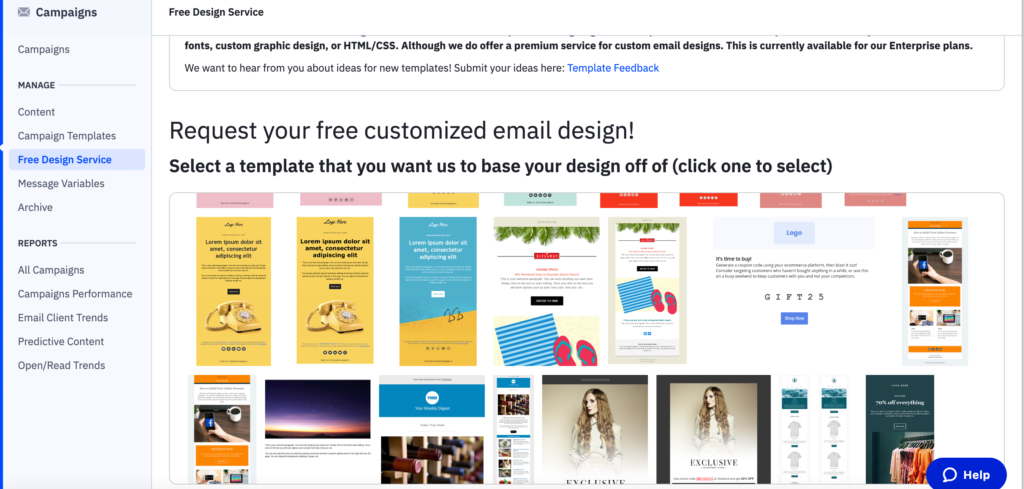
HubSpot’s Scalability and Customization Features
HubSpot stands out for its scalability, particularly beneficial for businesses that expect significant growth. Its suite of tools is highly customizable, offering solutions for marketing, sales, and service that can evolve with a company’s needs.
GetResponse’s Adaptability
GetResponse offers scalability mainly through its varied plan options, catering to businesses from small startups to large enterprises. It also provides customization in email marketing campaigns and automation workflows.

MailChimp’s Flexibility
MailChimp is known for its user-friendly platform that caters to both small and large businesses. Its customization options in campaign creation and audience segmentation make it adaptable for growing business requirements.
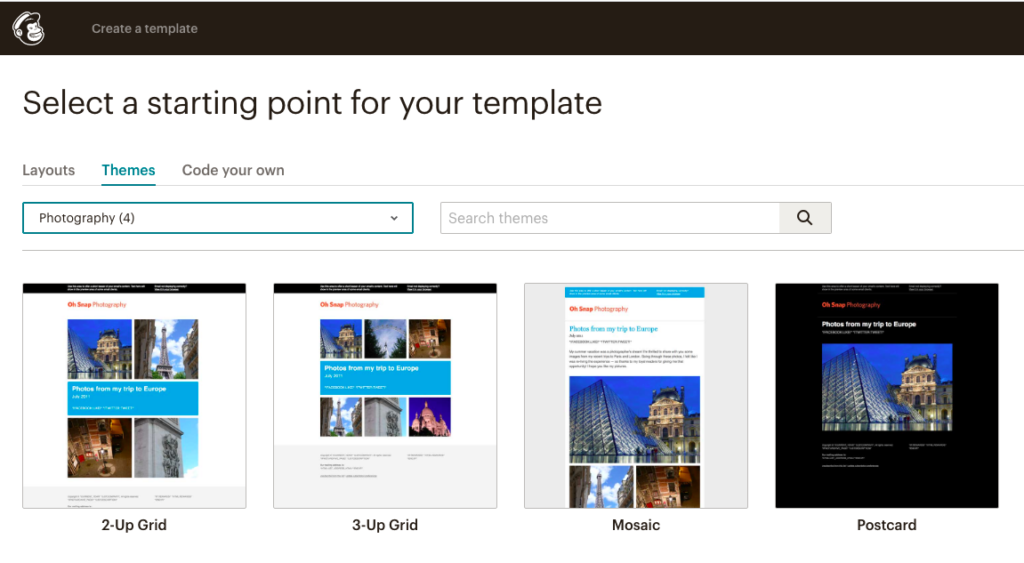
Key Considerations
- ActiveCampaign: Ideal for businesses that need advanced email automation customization as they grow.
- HubSpot: Suitable for businesses seeking a scalable all-in-one platform with extensive customization across marketing, sales, and service.
- GetResponse: A good fit for businesses that prioritize email marketing scalability and customization.
- MailChimp: Best for businesses looking for an easy-to-use platform that can scale and offers campaign customization.
Conclusion
Final Thoughts on Choosing Between ActiveCampaign and Competitors
In the competitive landscape of digital marketing tools, ActiveCampaign, along with HubSpot, GetResponse, and MailChimp, each presents distinct advantages tailored to varying business needs. Based on the analysis of key aspects like pricing, social media marketing features, integration, scalability, customization, and ease of use, it becomes evident how each platform can serve different organizational requirements.
For beginners seeking simplicity and ease of navigation, MailChimp is the standout choice. Its user-friendly interface and straightforward campaign management tools make it ideal for those just starting in email marketing and digital campaigns.
When it comes to handling large, complex projects, HubSpot emerges as the top contender. Its robust all-in-one platform, encompassing extensive CRM features, advanced marketing automation, and a wealth of integrations, caters well to the multifaceted needs of larger businesses or enterprises.
For those prioritizing creativity and looking for a platform that offers flexibility in design and campaign creation, GetResponse offers a compelling choice. With its integrated webinar features, customizable email templates, and e-commerce oriented tools, GetResponse allows for a creative approach to digital marketing, especially for those in the e-commerce sphere.
Turning to ActiveCampaign, it’s an excellent choice for businesses looking for a balance between advanced capabilities and user-friendliness. ActiveCampaign excels with its sophisticated email marketing automation and CRM integration, offering a robust platform for businesses keen on developing deep customer relationships and executing complex marketing strategies. Its high deliverability rates and extensive integration options further enhance its appeal, making it a compelling choice for businesses aiming to elevate their marketing efforts to a more advanced level.
In summary, while MailChimp, HubSpot, and GetResponse each have their specialties, ActiveCampaign stands as a versatile and powerful tool, balancing advanced features with ease of use. Businesses should consider their specific needs, from the scale of operations to the level of sophistication required in marketing campaigns, to make an informed decision. This guide serves to highlight the strengths of each platform, aiding businesses in selecting the one that best aligns with their marketing objectives and operational dynamics.

